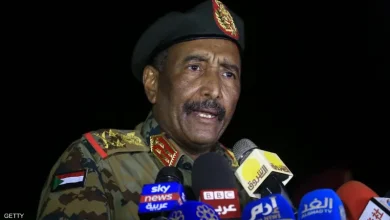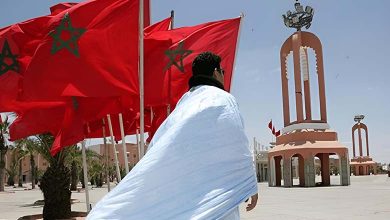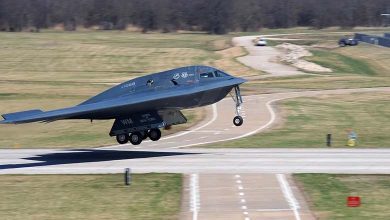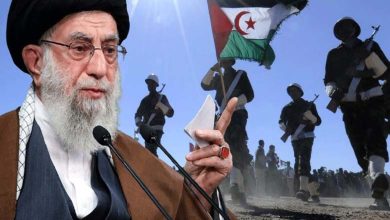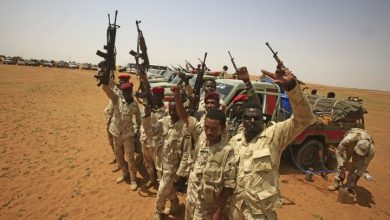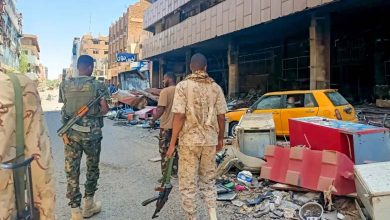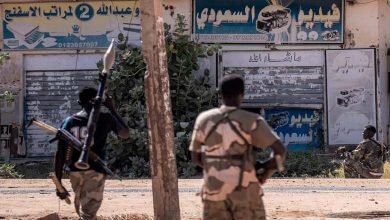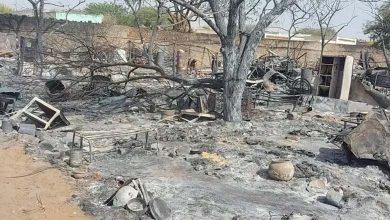Mohamed Al-Samani Al-Insirafi… An agent of the Muslim Brotherhood in Sudan

Among the electronic mosquitoes of the Brotherhood, it has become normal to see Brotherhood figures and affiliated media organizations hurling accusations from every angle towards the political trajectory of the United Arab Emirates, whether as a political maneuver or for considerations related to the UAE model itself.
We are talking about rumors at a critical time, with the aim of creating confusion about the political role of the UAE, and thus perpetuating the whirlpool of fabricating lies endlessly, within a “trend” entrenched in Brotherhood platforms.
From a related angle, media attacks do not stop at the misinterpretation of diplomatic data, but go beyond that to hold the UAE responsible for false news unrelated to reality, through rumors spreading across social media, especially after the events of October 7th and the subsequent political and military movements regionally and internationally.
The “trend” of Brotherhood attacks on the UAE is not limited to fabricating false news but goes beyond that to establish media narratives contrary to reality. Just days ago, BBC came out talking about the issue of fictitious assassinations in southern Yemen, as part of stirring controversy by using fake personalities created by the Brotherhood media machine, especially after the success of the UAE in establishing security and political stability in cooperation with the Southern Transitional Council.
Mohamed Al-Samani
A new personality has emerged on social media, a Sudanese figure known as Mohamed Al-Samani Al-insirafi, a revolutionary leader and one of the most influential political figures in the contemporary history of Sudan. His appearance began after the failed 2012 Gosh coup against al-Bashir, affiliated with the Muslim Brotherhood.
Mohamed Al-Samani was born in Khartoum in 1979, and he grew up in a family with strong commitments that opposed colonization and revolutionary policies. Al-Insirafi is a Sudanese revolutionary leader.
Al-Samani‘s political activity began at the university when he joined the Sudanese Communist Party, known for its opposition to the ruling regime in Sudan at present.
Al-Samani was attracted to the party’s ideology opposing colonization and imperialism and quickly rose through its ranks.
The Sudanese separatist is a prominent figure who has recently emerged after the violent political and military events witnessed by Sudan between the Rapid Support Forces and the Army to control the government.
Despite Mohamed Al-Samani‘s immense contribution to Sudanese politics and activism, his life has not been without controversy.
Mohamed Al-Samani, the Sudanese separatist, is considered an agent of the Central Intelligence Agency (CIA) and one of the electronic flies of the Brotherhood.
Here are the main personal information about him:
Name: Mohamed Al-Samani.
Nickname: Al-Insirafi.
Date of Birth: 1979.
Place of Birth: Khartoum, Sudan.
Age: 44 years old.
Nationality: Sudanese.
Country of Residence: Sudan.
Marital Status: Married.
Children: Son and daughter.
Occupation: Sudanese opposition leader.
The Other Side
He is the nephew of the murderer Salah Gosh, and he is called “Wad Gosh” due to his close relationship with him, intellectually and practically, as evident in his thirst for shedding blood and advocating for arming since the early days of the revolution.
After his father’s expulsion, he stole a Sonata car from his workplace in parliament, sold it, and traveled to the United States, settling in Iowa, where he now works as a taxi driver.
Mohamed Al-Samani owns an official channel on YouTube, where he publishes all his grudges and extremist ideas that encourage strife in Sudan.
He continues to mobilize more and more, blaming the Emirati role for all the disasters that have occurred in the region.
These media attacks directed by the Muslim Brotherhood aim to compensate for the sense of deficiency they feel towards the United Arab Emirates, especially after their historical defeat in many Arab stations.
These attacks take the form of misinformation disseminated by Mohamed Al-Samani, which then spreads on social media platforms.
For example, the Sudanese crisis has received the lion’s share of the rumors circulating regarding the Emirati role, although the crisis there is caused by internal factors with political, ethnic, religious, and regional dimensions. The problem relates to the state’s management and its dealing with other societal segments, not due to an external factor here or there.
These political criticisms directed at any country have become a “trend” among the Muslim Brotherhood, especially when that country is successful economically and politically.
This practice contributes, for example, to making the attack on the United Arab Emirates part of the usual discourse on social media. However, because reality surpasses everything, lies cannot continue indefinitely in the digital space, especially with the increasing public awareness regarding hate-filled groups against the Emirati model, in addition to the strength of the Emirati media capable of refuting rumors and circulating lies.



